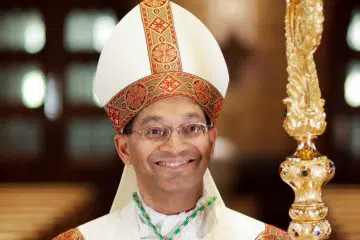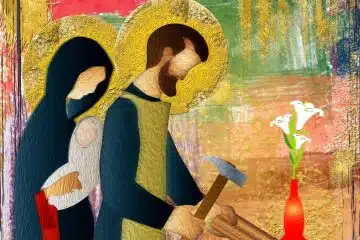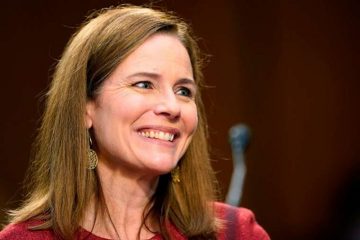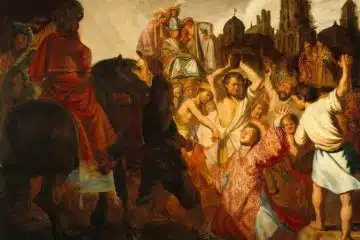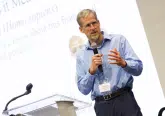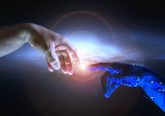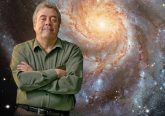Standing Room Only for Talk by Renowned Catholic Scientist
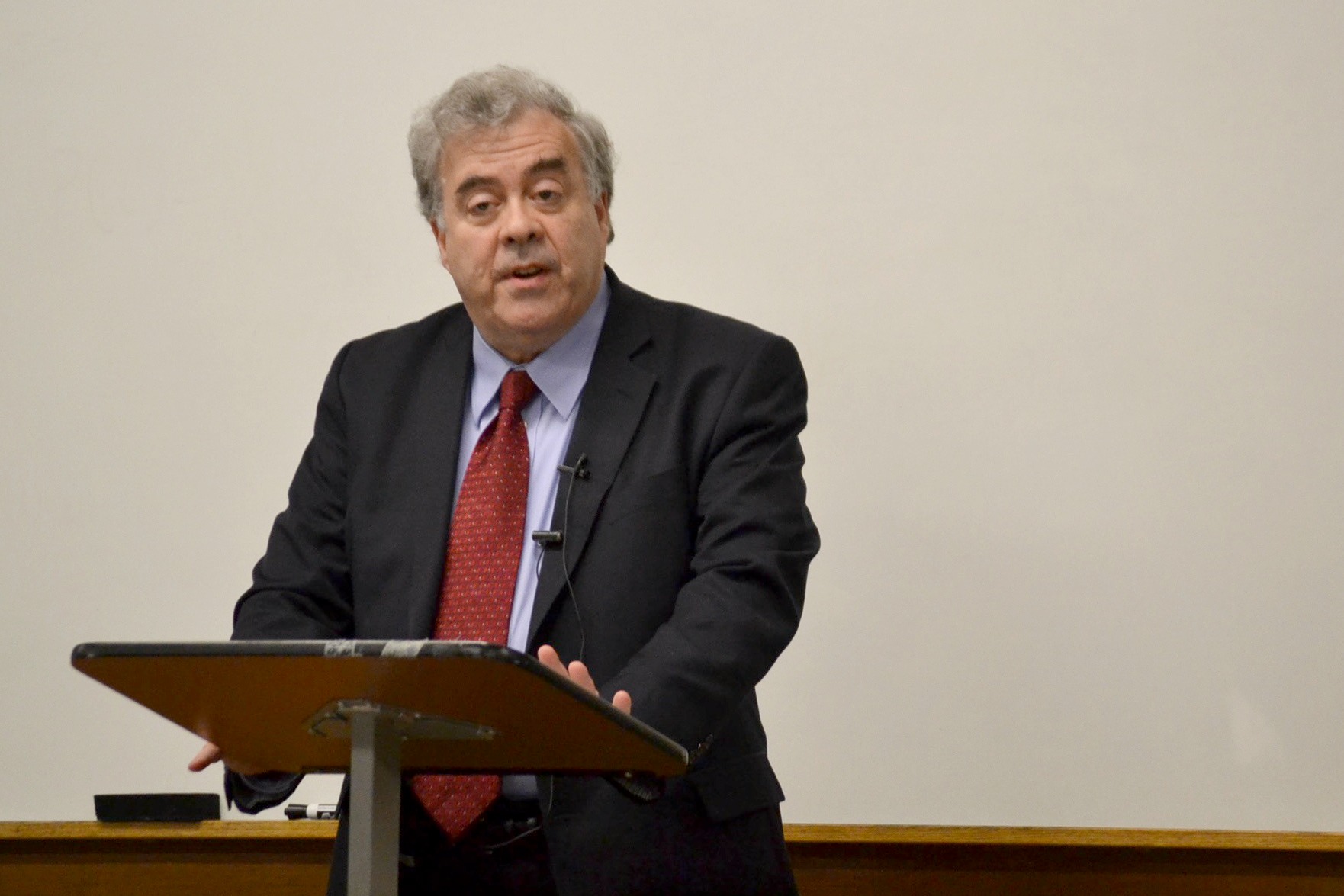
By Gail Finke
After the extra chairs brought in to supplement the auditorium seating filled up, some stood in the back. Some sat on the windowsills or in the aisles. And while many went elsewhere after seeing that the eminent physicist’s lecture at the University of Cincinnati was full to bursting, about 16 hardy souls stood in the hallway to listen.
String theory? “Quantum consciousness”? No, the subject of Dr. Stephen Barr’s lecture was “The Catholic Faith and Evolution.”
The president the new Society of Catholic Scientists, Barr is a theologian as well as a professor of physics and astronomy at the University of Delaware. A fellow of the American Physical Society, the Princeton graduate is the co-discoverer of the Flipped SU(5) scheme of unification and co-proposer of the Nelson-Barr mechanism, both well-knownto physicists. In 2007 he was awarded the Benemerenti Medal for service to the Catholic Church. On March 7 he delivered the fifth annual Conway Lecture in Catholic Studies at U.C. – in a room, due to a scheduling error, much smaller than originally planned.
Dr. Jeffrey Zalar, director of the Catholic Studies program, introduced him as “one of the most important figures in the contemporary American church,” because of his breadth of mind as both a leading scientist and a leading theologian.
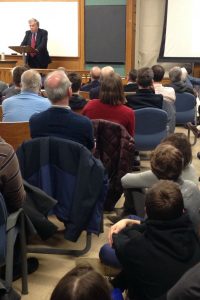
To an eager audience of student scientists and adults from many different fields (the annual Conway lecture is meant to be “town and gown” – free and open to the general public to introduce a wide variety of people to Catholic intellectual thought), Barr explained that the Catholic intellectual life has been, for all of its history, one of rational inquiry and understanding. All three historical versions of the scientific theory of evolution, and most of the philosophical theories arising from them, he said, have been compatible with the Catholic faith.
After tracing the three theories (the original idea of “common descent,” Darwin’s theory, and the later neo-Darwinist theory that incorporated genetics), Barr explained from the Church Fathers onward, Catholic theologians have understood that soul, not the body, is what differentiates mankind from other created beings. Neither the mechanisms of that creation nor the similarities between human and other bodies, he said, change this fundamental difference.
Reason and will are the properties of the human soul, he said, and their existence, not the appearance of the human body, are the way human beings are made in the “image and likeness of God.” The early Church Fathers understood the creation accounts in Genesis to be metaphorical, not scientific treatises, he said, and they regarded the account in Genesis of God’s breathing life into Adam as the point that his already-created body became human.
Likewise Barr said, the early Church fathers all agreed that God’s omnipotence and omniscience meant more than current scientists and atheists, as well as current religious fundamentalists, mean by the term “creation.” Their reason-based idea of God, grounded in philosophy, led them to conclude that the very existence of order in nature proves that God both exists and created it. Contrary to the arguments of today’s “new atheists,” he said, the discovery of more and greater complexity in order is a further argument for their conclusions, not against them.
While never declaring the current understanding of evolution as definitive, Barr said that most scientists accept it as correct, and explained briefly that while several Intelligent Design ideas (such as Michael Behe’s idea of “irreducible complexity”) have some intellectual merit, they can be countered. The arguments of evolution as a theory are no threat to faith, Barr said, and the dubious sociological or philosophical conclusions people have sometimes drawn from them are not scientific. Rather, they show the need for sound thinking beyond the boundaries of science.
After Barr explained and refuted eight common arguments that evolution disproves the existence of God and the creation of the universe, one of the student scientists in the audience asked plaintively why so many Catholics seem to think that evolution is at odds with faith.
“I think there are two reasons,” Barr said. “First, the Second Vatican Council said that everyone should be more theologically knowledgeable, but instead we got the 1960s, which downplayed ‘book knowledge’ of all kinds. So now we have two generations who never learned that this tradition exists.
“And second, before the Second Vatican Council, Catholics didn’t mix much with evangelicals.” While a new spirit of ecumenism with other Christians means that Catholics now “rub shoulders with evangelicals,” Barr said, many of them are religious fundamentalists who believe in reading the Bible literally. While more fellowship with evangelicals is itself good, he said, coupled with the wide-spread loss of memory that the Catholic intellectual tradition exists, it has led to many Catholics assuming that “the idea that evolution disproves the Bible is Christian.”
Following the talk, many in the audience stayed to discuss Barr’s books, and several Ph.D. candidates asked to join the Society of Catholic Scientists. For information about the society and how to join, visit Catholicscientists.org.



